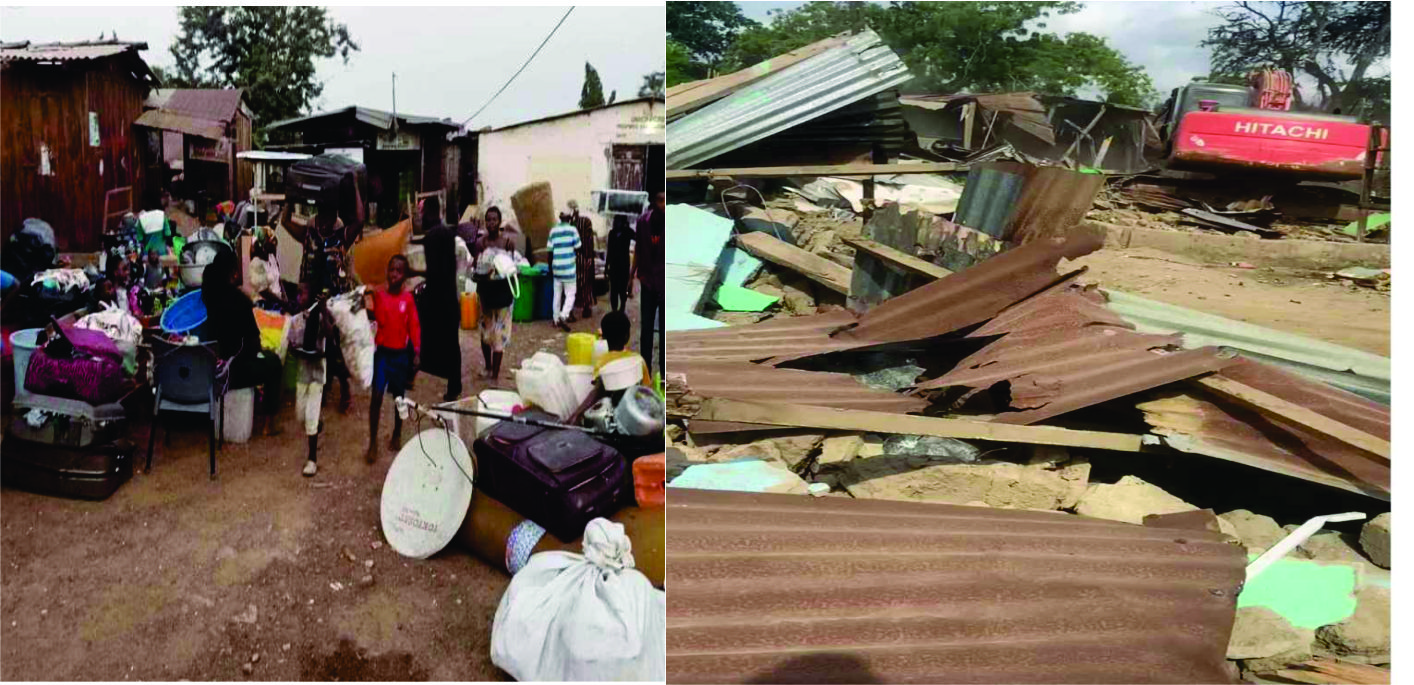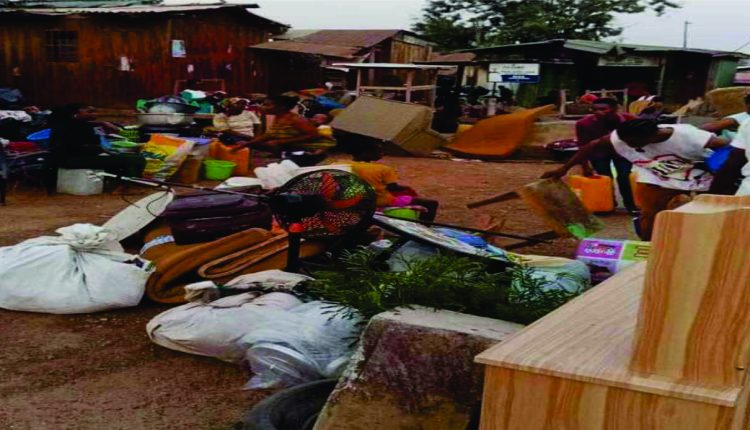The Government of Liberia says it is concerned about the current situation facing former Liberian refugees in the Buduburam Refugee Camp in Ghana.
According to a release dated February 28, 2024, issued by the Liberia Refugee Repatriation and Resettlement Commission (LRRRC), direct engagement with Liberian in the camp shows the demolition of homes belonging to former Liberian refugees residing in the camp, on the instruction of the Gomoa Chiefs and the Government of Ghana, thus making them homeless.
The release furthered that in 2022, the Gomoa Chiefs complained and threatened the former Liberian refugees with a similar demolition exercise, but an intervention by the Liberian Government and Ghana, comprising the Ministry of Foreign Affairs (MFA), Liberia Immigration Service (LIS), and the (LRRRC), profiled the former refugees for their possible repatriation to Liberia, which should have been done in 2023, but the previous government did not provide the needed funds for the repatriation exercises.
As a result of the current demolition exercise in Ghana, over 1,600 former Liberian refugees are now sheltering in school buildings and other public facilities, and the situation is causing the Liberian families, especially the women and children, untold embarrassment and hardship.
“The LRRRC is working with various government ministries and the National Legislature to ensure the situation is addressed with an intervention to repatriate Liberians who are currently undergoing such a devastating condition,” the release said.

The government’s concerns grew after it was reported that the Liberian refugee camp in Ghana, known as Buduburam was being finally demolished on February 28, 2024, which also caused serious panic amongst the residents which included Liberians.
The Ghanaians’ action came after series of warnings from its Ghanaian authority for the closure of the camp but what came as a dismay was that the demolition began from the Area A and its surrounding mainly populated by Liberians.
The action has led to the displacement of Liberians, though script off the refugees’ status but they were not naturalized Ghanaian citizens yet after several years of residence in that West African County.
It was reported that houses and businesses in the areas were all destroyed due to the demolition exercise but according to the report, the Ghanaian authority had earlier acknowledged Liberians living in Ghana that they were not considered as refugee due to the consisting conduct of peaceful elections in Liberia and that the country is now enjoying peace.
At the same time, many Liberian held the belief that they should be treated as refugee on grounds that they flew from Liberia due to the brutality, political and religious persecution carried out during the civil war.
According to some Liberians, they are also afraid to come back because individuals who may have committed heinous crimes are now serving in key positions of government and that these are amongst the many reasons Liberians residing in Ghana believe that their rights as human should be respected and still be seen as refugee.
It can be recalled that after the beginning of the Liberian civil war in 1989, the Ghanaian government established the Buduburam refugee camp in 1990 in response to the arrival of displaced Liberians in the country.
After the final ceasefire agreement of the war in 2003, UNHCR repeatedly urged the repatriation of refugees to Liberia. The pace of repatriation, however, was sluggish among the remaining Liberians in Ghana due to the precarious political and economic environment in Liberia.
Many Liberian refugees in Ghana had been hoping for third-country resettlement but, with peace restored in Liberia, most no longer met the criteria for resettlement.
The other remaining ‘traditional’ durable solution – local integration – failed to gain support from either the host government or the Liberian refugees themselves.
The Ghanaian administration viewed local integration as an imposition on the country and did not offer integration as an option to refugees who remained.
Local integration was also unpopular with refugees, mainly because of the lack of socio-economic prospects for them in Ghana. Not only did these refugees remain without a durable solution but their living conditions had also become increasingly challenging.
After the 2003 ceasefire, the amount of humanitarian aid was continuously reduced and almost entirely terminated by 2010. In addition, refugees continued to face a number of barriers to engaging in economic activities outside the camp, such as local xenophobia and their own lack of knowledge of local languages.
Thus, with the exception of a few recipients of remittances, many Liberians were reduced to bare subsistence inside and around the camp.


